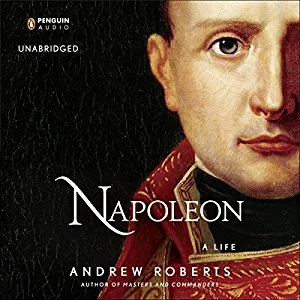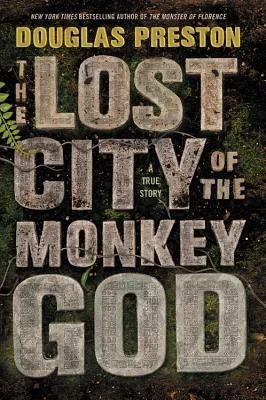Napoleon
Napoleon: A Life by Andrew Roberts
Napoleon was a protean genius whose reputation was a controversial in his day as in our own. He has been damned as a brutal proto-Hitler, wreaking destruction on Europe in his quest for glory and empire, and lauded as “the enlightenment on horseback”, spreading his highly selective, personal vision of the French Revolution around the continent.
He encouraged freedom of religion, social mobility, promotion based on merit….he was one of the greatest living examples of all three, but he was not a democrat by any means. Roberts expertly traces his evolution from Corsican nationalist to committed French Jacobin to autocrat, progressively emasculating the democratic institutions that had sprung up during the Revolution as he ascended to power. He held elections and plebiscites when convenient, but shamelessly manipulated the results. He claimed to loath old-style hereditary monarchies, though he instituted a not-so-different version based on himself, his family and a (supposedly meritocratic) new aristocracy. He promoted the end of feudal society, at least where it suited him. He directed a through-going reform of the French legal code, the most comprehensive in Europe since that of the emperor Justinian, which spread around the world and may be one of his most lasting legacies, together with his modernization of the administrative apparatus of the French state. He was a supporter of the arts and sciences, but then so were innumerable despots before him.
On the other hand extortion, corruption, misuse of and personal gain from state funds (e.g. generous stipends from the treasury for his mistresses) were integral parts of his regime. He was ruthless in his pursuit of power and empire, caused huge amounts of suffering (for his own army on the failed Russian adventure, and for the inhabitants of many of the lands where he fought his wars, such as Haiti, Portugal and Spain), but did have a revolutionary “enlightenment” vision as a framework (or excuse?) for his ambitions versus Hitler who offered nothing but servitude in exchange for conquest or submission. He had no compunction about the pillage of foreign lands of specie and artistic treasures, but then neither did any of his contemporaries. His grand economic policy (the protectionist “Continental System”) was a dismal failure especially when contrasted with the dynamism of the nascent industrial revolution taking place in England, his greatest rival.
He was one of the greatest military geniuses of all time, but when he lost, he lost disastrously, usually by not following his own battle-proven military maxims (as happened with the invasion of Russia and the battle of Waterloo). He was unprepared for, and unable to adapt to, the guerilla war of attrition waged against him by the Spanish, with British support. While he was brilliant on land, he could never get the French navy up to the point where it was a credible threat to that of England, thus leaving France effectively under English blockade for most of his reign.
The beginning of the end for him was Russia. After a relatively successful campaign in Poland and the Baltic countries, he allowed himself and his army to get sucked into Russia by a combination of smart tactics on the part of his enemies (refusing to engage in full-on battle, always retreating ahead of him destroying resources as they did), hubris, disease (specifically lice-borne typhus) underestimation of the deadly winter climate and inability of the land to provision his vast army so far beyond his supply lines. He crossed the River Niemen into Russia with a multinational force of 432,000 men, 10,000 remained with him when he re-crossed it on his retreat. It was one of the greatest military debacles in human history.
He ultimately left France in pretty bad shape: bled bankrupt by his wars, invaded by its enemies England, Austria, Prussia and Russia and (worse yet) back in the hands of the hated Bourbons. France recovered over the next half-century and it can be argued that by then was one of the two most influential nations in the world, much of the credit for which goes to the changes he initiated that became institutionalized, both there and abroad.
He redrew the map of Europe. The Italian nation was essentially created by him, he dismembered the rump of the Holy Roman Empire, leaving a weakened Austria in its wake and catalyzing the eventual amalgamation of the myriad German principalities into a nation (starting with resurgent Prussia). I’d wager that the changes he set in motion didn’t really play themselves out until the late 20th C, after two world wars had been fought and communism fell.
Napoleon was undeniably brilliant: a voracious reader, curious, inquiring, open to criticism and discussion (at least amongst his friends), willing and able to change his mind, his strategies and plans if needed. He was restless, always in motion. He had a magnificent touch with his troops: he mixed with them, talked to them, cared for them and made their physical needs (insofar as was possible in that age and under the circumstances in which they marched and fought) and morale top priorities. That was probably a huge part of the reason they fought so well for him. Napoleon was a voluminous correspondent, his surviving letters number in the tens of thousands, and had an astonishing interest in and command of the minutiae of all aspects of his country and of warfare. It probably followed naturally from this that he was an incorrigible meddler and micromanager (including in/of the marital lives of his family and subordinates, with mostly disastrous consequences). He also had a great sense of humor and was wonderful at turning phrases that have become lasting aphorisms. As I suppose is true with all skilled politicians, he was a shameless propagandist and self-promoter, exaggerating his triumphs and minimizing his failures. The numbers in his battlefield bulletins, even those that followed his victories, could never be trusted.
His love life was unconventional, to say the least. Although he loved Josephine (and she ultimately came to love him) they were serially unfaithful to each other. His love for her didn’t override his ruthless ambition: he divorced her to marry Princess Marie Louise, daughter of one of his enemies, Emperor Francis of Austria, with the objective of securing his dynastic ambitions by fathering a legitimate “royal” son. He continued to have affairs during his second marriage as well….with the author giving the total of his well-documented mistresses at 21.
Anyone who gives short shrift to the Great Man theory of history should read this outstanding biography and reconsider. Its 810 pages (excluding notes and references) breezes by like a fast-paced adventure novel.


